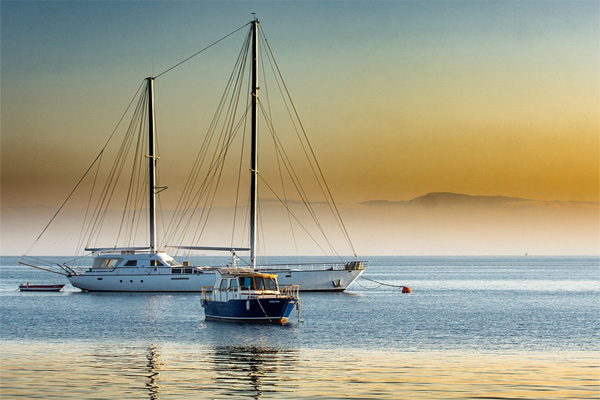Travel Pages
RomWell Travel Advisory
Boating Tips & Info
Most new boaters go to sea without prior knowledge of the cruising lifestyle and its demands. This can result in conditions ranging from the merely inefficient to the truly tragic.
Learn more about becoming a safe, responsible boater. Do the first step and find out more about boating organizations in your area. Join them and learn everything you can.
You should also learn to swim before you start boating. Most drownings occur in non-swimmers and the value of swimming lessons as a preventative before you start boating appears logical.
Before leaving make sure that your boat is in good working condition and properly equipped with required safety equipment onboard.
BOATING TIPS:
 Find out information about weather forecast, local hazards and places where you will be able to refuel fuel for the planed trip.
Find out information about weather forecast, local hazards and places where you will be able to refuel fuel for the planed trip.
 Wear your lifejacket or any other personal floating device, there are many reasons to do that. Make sure it's right size, don't buy to large - it's unsafe.
Wear your lifejacket or any other personal floating device, there are many reasons to do that. Make sure it's right size, don't buy to large - it's unsafe.
 Children should always wear lifejacket or any other personal floating device when they are on docks or around water.
Children should always wear lifejacket or any other personal floating device when they are on docks or around water.
 Before leaving make sure that your friends, relatives or neighbors know where you are going, when you'll be back and what your boat looks like.
Before leaving make sure that your friends, relatives or neighbors know where you are going, when you'll be back and what your boat looks like.
 Find proper marine charts for the area and don't ride after dark or in reduced visibility.
Find proper marine charts for the area and don't ride after dark or in reduced visibility.
 Make sure you have first aid kit, radio, proper tools and spare parts.
Make sure you have first aid kit, radio, proper tools and spare parts.
 Respect the speed limits and other restrictions and navigate with care.
Respect the speed limits and other restrictions and navigate with care.
 Avoid wake jumping and passing close to other boats.
Avoid wake jumping and passing close to other boats.
 Newer allow other people to use your boat until you show them how to use it properly.
Newer allow other people to use your boat until you show them how to use it properly.
 Water temperature of rivers, oceans and lakes increases only a few degrees during the summer and falling overboard can be dangerous at any time of year.
Water temperature of rivers, oceans and lakes increases only a few degrees during the summer and falling overboard can be dangerous at any time of year.
 Water absorbs heat about 25 times faster than air. Knowing what to do will help you to survive.
Water absorbs heat about 25 times faster than air. Knowing what to do will help you to survive.
 If your body can't maintain a normal temperature you will become hypothermic.
If your body can't maintain a normal temperature you will become hypothermic.
 It is very important to stay calm, panic wastes valuable energy needed to keep you warm.
It is very important to stay calm, panic wastes valuable energy needed to keep you warm.
 Keep your body out of water as possible, because water cools your body faster than air does.
Keep your body out of water as possible, because water cools your body faster than air does.
 Try to stay with your vessel, because swimming to shore can use up too much energy needed to keep you warm.
Try to stay with your vessel, because swimming to shore can use up too much energy needed to keep you warm.



